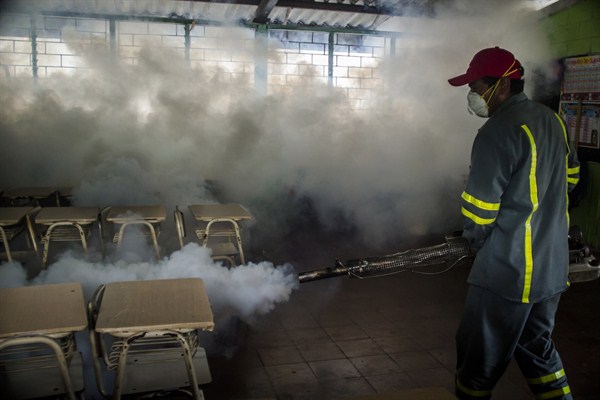A public health emergency is, above all, a human crisis. But its consequences don’t end there. A major emergency, whether its severity is real or perceived, can have a significant economic and political impact. Now that the World Health Organization has declared the Zika virus an “international public health emergency,” warning that the mosquito-borne pathogen is spreading “explosively,” the Zika outbreak has become loaded with even more political power.
Zika’s force comes not only from the tragic effects it can apparently have on babies. Scientists have not proven the link, but they believe the virus is behind the thousands of cases of microcephaly in infants born to women who became infected during pregnancy. The heartbreaking image of the tiny newborns with abnormally small heads and brains have now appeared on front pages across the world, drawing popular attention to the virus in a way that transforms a public health problem into a political one.
And it could get worse. There is some evidence that Zika may be linked to Guillain Barre syndrome, a full-body paralysis that, if confirmed, could make Zika seem much more menacing, because it can potentially have a devastating impact in a much larger segment of the population.

